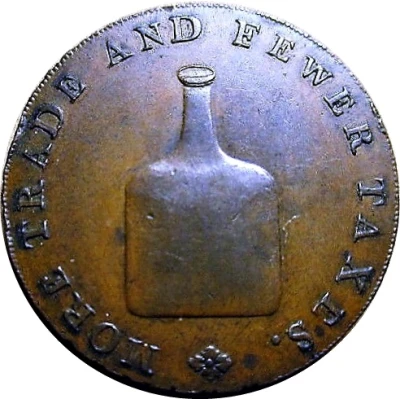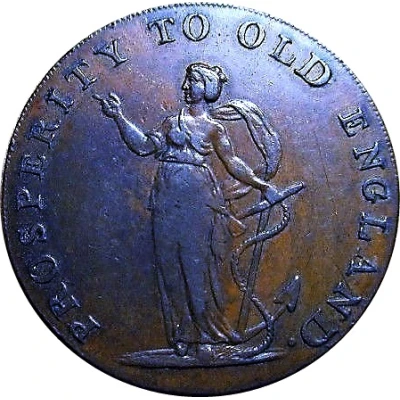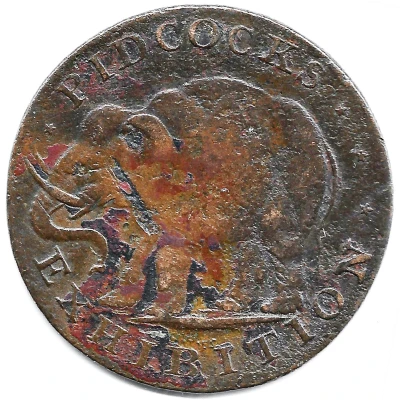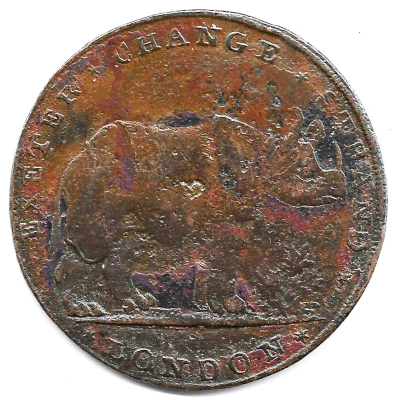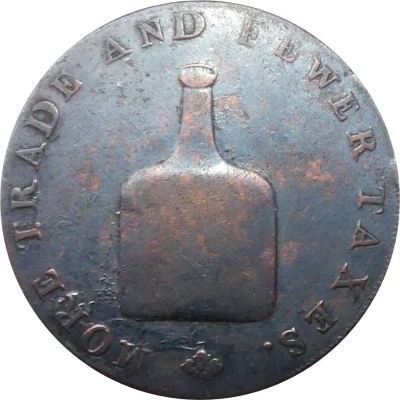
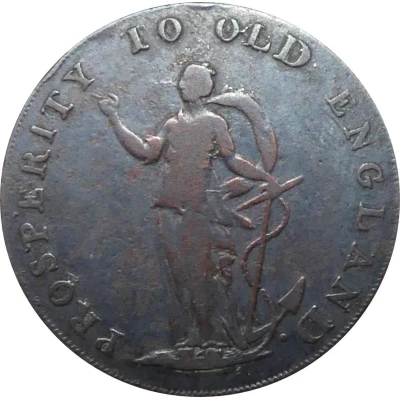

© Collector 86 (CC BY-NC-SA)
½ Penny Norfolk - Norwich / R. Dinmore ND
| Copper | 9.8 g | 28.65 mm |
| Issuer | United Kingdom (United Kingdom, British Overseas Territories and Crown Dependencies) |
|---|---|
| King | George III (1760-1820) |
| Type | Token |
| Years | 1795-1797 |
| Value | ½ Penny (1⁄480) |
| Currency | Conder tokens (1787-1797) |
| Composition | Copper |
| Weight | 9.8 g |
| Diameter | 28.65 mm |
| Thickness | 2.1 mm |
| Shape | Round |
| Technique | Milled |
| Orientation | Medal alignment ↑↑ |
| Demonetized | Yes |
| Updated | 2024-10-09 |
| Numista | N#337301 |
|---|---|
| Rarity index | 93% |
Reverse
Standing figure of Hope supporting anchor with legend around.
Note: figure pointing to Y of PROSPERITY
Script: Latin
Lettering: PROSPERITY TO OLD ENGLAND.
Edge
Plain with incuse lettering
Note: varieties exist (see below)
Lettering: RICHARD DINMORE & SON NORWICH .XXXX
Comment
Richard Dinmore had a business as a saddler’s, ironmonger and hemp merchant at Timber Hall, Norwich.Edge varieties exist for DH#24 and another type, DH#23, has the obverse figure pointing to T.
Mules exist featuring this reverse die used for the obverse with a sailing ship on the reverse (DH#25) or a dove and cornucopia (DH#26).
Sub-type DH#24c also struck in silver and brass or copper-gilt.
Interesting fact
One interesting fact about the Token ½ Penny (Norfolk - Norwich / R. Dinmore) ND (1795-1797) coin is that it was issued during a time of severe coinage shortages in the United Kingdom, particularly in the eastern counties of England. The coin was minted by a private individual, R. Dinmore, and was intended to serve as a substitute for the official copper coins that were in short supply. The coin's design features the image of a crowned shield with the initials "RD" below it, and the reverse side features the image of a tree with the inscription "Norfolk & Norwich." Despite being issued by a private individual, the coin was widely accepted and circulated among the local population, and it remains a sought-after collector's item among numismatists today.
